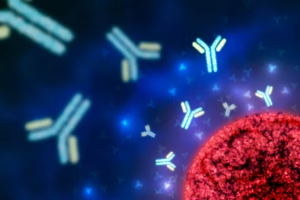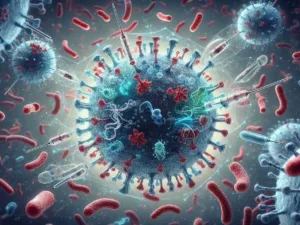Have you ever thought about the important role of antibodies in protecting your body against invaders? These microscopic superheroes are essential in identifying and neutralizing harmful pathogens. Antibodies play a significant role in our immune system, protecting us from infections and diseases. Without them, our immune systems will struggle to deal with the many threats that come with them every day.
Introduction
Antibodies are also known as immunoglobulins, they are Y-shaped proteins produced by B cells. They recognize and bind to specific antigens present on the surface of pathogens, such as viruses and bacteria. Once bound, antibodies neutralize pathogens or mark them for destruction by other immune cells. This targeting system is crucial to the immune response, ensuring that only harmful invaders are attacked.
How Antibodies Protect Us

When your body encounters a pathogen, antibodies spring into action. They act like a lock-and-key mechanism, where the antibody binds specifically to an antigen. This binding process is important because it helps the immune system recognize and remember the invader. Here’s how antibodies contribute to your protection:
- Neutralizing Pathogens: Antibodies can neutralize pathogens directly. They bind to the virus or bacterium and block its ability to infect cells. This action prevents the pathogen from causing disease.
- Tagging for Destruction: Once antibodies bind to a pathogen, they tag it for destruction. Immune cells, such as macrophages, recognize these tags and engulf the pathogen. This process, known as opsonization, helps clear the infection from the body.
- Activating the Immune Response: Antibodies also help activate other immune responses. For instance, they can trigger the complement system, a group of proteins that aids in destroying pathogens.
Classification of Antibodies
There are five main classes of antibodies, each with unique properties and functions:
- IgG: The most abundant antibody in blood and tissue fluids, providing long-term protection against pathogens.
- IgA: Found primarily in mucous membranes, defending against invaders in areas like the respiratory and digestive tracts.
- IgM: The first antibody produced in response to an infection, playing a crucial role in the early stages of immune defense.
- IgE: Includes protection against allergic reactions and parasitic infections; Triggers histamine release from mast cells and basophils.
- IgD: Mainly acts as a receptor on B cells that have not been exposed to antigens; Its role is less understood but is believed to be involved in the initiation of immune responses.
Role of Antibodies in Immune System

When the body detects a pathogen, the immune system triggers a response that involves the production of antibodies. These antibodies circulate in the bloodstream and bind to the antigen on the pathogen. This binding can directly neutralize the pathogen or signal other immune cells to destroy it. The specificity of the antibody ensures that the immune response is accurately directed at the aggressive species.
Vaccines take advantage of this mechanism by introducing a harmless part of a pathogen (such as a protein or inactivated virus) to the immune system. This exposure induces the production of antibodies without causing disease, thus providing immunity against future infections. The success of vaccines in preventing diseases such as measles, polio, and influenza enhance the importance of antibodies in disease prevention.
Importance in Disease Prevention
Antibodies are crucial in preventing and fighting infections. For example, in modern medicine, scientists have applied the power of antibodies to develop groundbreaking treatments. They also play a significant role in neutralizing bacterial toxins and facilitating the destruction of infected cells. Monoclonal antibodies are produced in the laboratory and designed to target specific proteins associated with diseases such as cancer or autoimmune disorders. This technology has revolutionized treatment options for many previously challenging conditions.
Conclusion
The role of antibodies in the immune system is crucial. These proteins are important for recognizing and neutralizing pathogens and protecting the body from infections and diseases. Antibodies help in the development of vaccines and treatments for various diseases, featuring their importance in maintaining health and preventing disease.
By appreciating the crucial role of antibodies, we can better understand the sophistication of the immune system and our body’s remarkable capacity to defend against the number of threats. Developments in immunology are continuing to reveal new insights into antibodies, opening the ways for innovative treatments and improved public health measures. Realizing the importance of antibodies ensures that we remain careful and prepared in the fight against infectious diseases.




